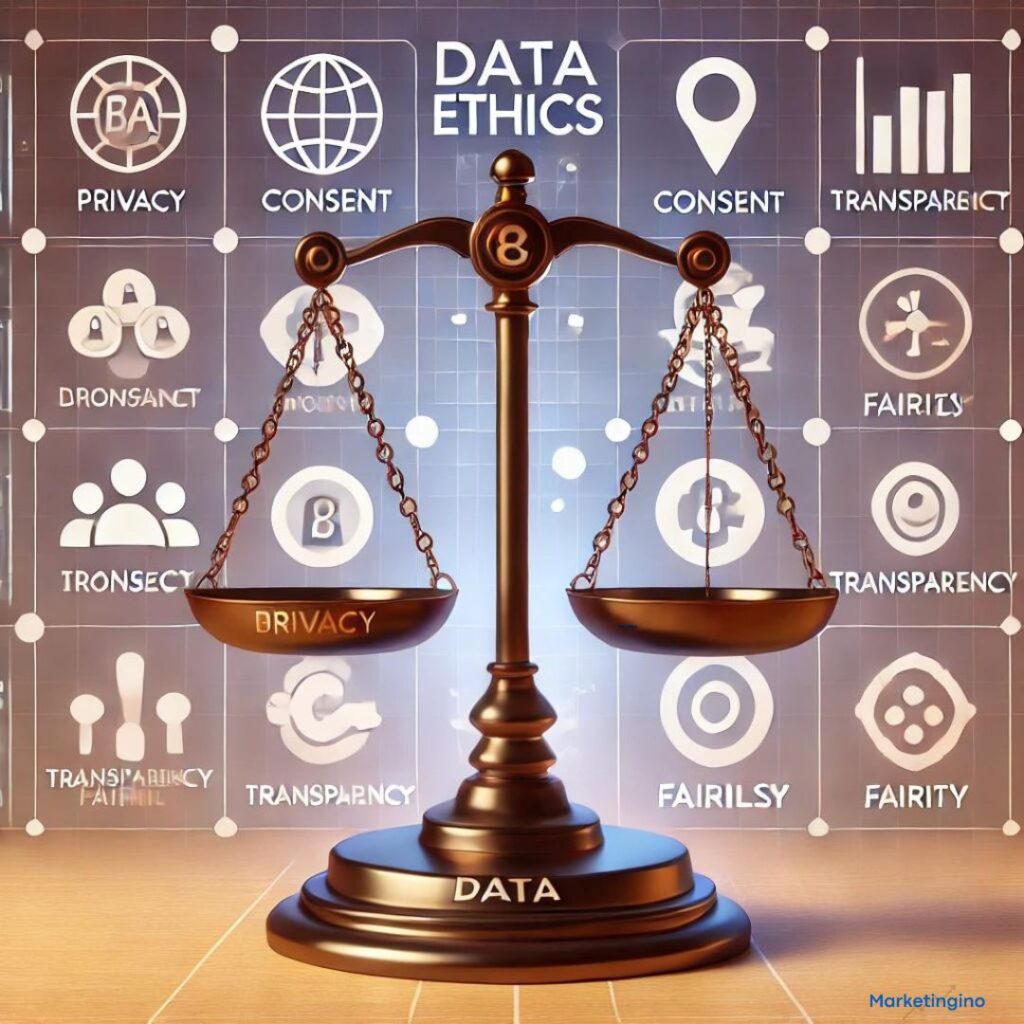In the era of big data and advanced analytics, data ethics has emerged as a crucial field of study. It involves evaluating the moral challenges related to the collection, use, and analysis of data. As data becomes increasingly integral to decision-making processes in various sectors, understanding and addressing the ethical implications is vital for ensuring fairness, accountability, and respect for individual privacy.
What is Data Ethics?
Data ethics is a branch of ethics that focuses on the moral issues arising from data collection, processing, and analysis. It addresses questions about how data should be handled, who has access to it, and the impact of data-driven decisions on individuals and society. Data ethics encompasses principles such as privacy, consent, transparency, and equity.
Key Principles of Data Ethics
- Privacy: Protecting individuals’ privacy is a fundamental principle of data ethics. This involves ensuring that personal data is collected, stored, and used in ways that do not infringe on individuals’ privacy rights.
- Consent: Ethical data practices require obtaining informed consent from individuals before collecting their data. This means clearly explaining how the data will be used and allowing individuals to make informed choices about their participation.
- Transparency: Transparency involves being open about data collection methods, data usage, and the algorithms used in data analysis. It ensures that stakeholders understand how data-driven decisions are made.
- Equity: Data ethics emphasizes the importance of fairness and equity in data collection and analysis. This means avoiding biases that could lead to discriminatory outcomes and ensuring that data practices do not disproportionately harm certain groups.
- Accountability: Organizations and individuals involved in data collection and analysis must be accountable for their actions. This includes being responsible for data security, addressing ethical concerns, and rectifying any harm caused by unethical data practices.
Ethical Challenges in Data Collection
- Surveillance and Privacy Invasion: The increasing use of surveillance technologies and data collection methods can lead to privacy invasions. Ethical data collection requires balancing the need for information with the right to privacy.
- Informed Consent: Obtaining genuine informed consent can be challenging, especially when dealing with complex data practices that individuals may not fully understand. Simplifying consent forms and ensuring clear communication is essential.
- Data Ownership and Control: Questions about who owns data and who has the right to control its use are central to data ethics. Ensuring that individuals retain some control over their data is a key ethical consideration.
Ethical Challenges in Data Analysis
- Bias and Discrimination: Data analysis can inadvertently perpetuate biases present in the data or the algorithms used. Ethical analysis involves identifying and mitigating these biases to prevent discriminatory outcomes.
- Transparency of Algorithms: The use of complex algorithms in data analysis can lead to opaque decision-making processes. Ensuring that these algorithms are transparent and understandable is crucial for ethical data practices.
- Impact on Society: Data-driven decisions can have wide-ranging impacts on society. Ethical data analysis considers the broader social implications and strives to minimize negative consequences.
Addressing Ethical Challenges
- Developing Ethical Guidelines: Organizations should develop clear ethical guidelines for data collection and analysis. These guidelines should be based on the key principles of data ethics and be regularly updated to address emerging challenges.
- Ethical Training and Awareness: Providing training on data ethics to employees involved in data collection and analysis is essential. This ensures that everyone understands the ethical implications of their work and adheres to ethical standards.
- Engaging Stakeholders: Engaging a diverse range of stakeholders, including data subjects, ethicists, and policymakers, in discussions about data practices can help identify and address ethical concerns.
- Implementing Technical Solutions: Technical solutions, such as privacy-enhancing technologies and bias detection algorithms, can help address ethical challenges. These tools can enhance privacy, transparency, and fairness in data practices.
The Future of Data Ethics
As technology evolves, the field of data ethics will continue to face new challenges. The rise of artificial intelligence (AI), machine learning, and big data analytics will introduce new ethical dilemmas that require careful consideration. Continuous dialogue, research, and innovation in ethical practices will be essential to navigate these challenges.
Data ethics is a vital field that addresses the moral challenges associated with data collection and analysis. By adhering to principles such as privacy, consent, transparency, equity, and accountability, organizations can ensure ethical data practices that respect individual rights and promote fairness. As data continues to shape our world, fostering a culture of ethical data practices will be crucial for building trust and safeguarding the well-being of society.


